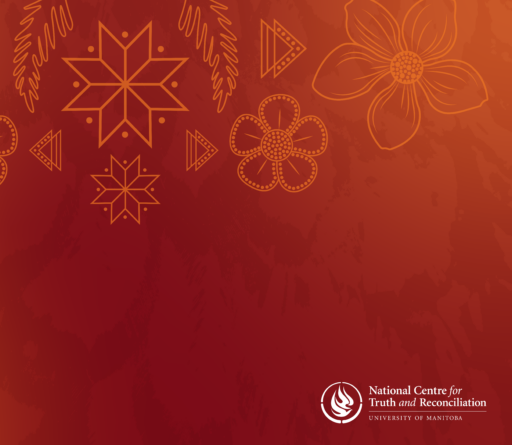College Blog
Sunita called the College Practice Advisor to ask about steps to follow if she decided to resign her physiotherapy license. Sunita described her excitement and joy when starting her career 10 years ago, but now recognized that she no longer looked forward to working with her patients. She was considering a career change, as she felt that she could no longer provide the level of care that she had once aspired to. In short, she felt burnt out.
Burnout can occur in any profession, including physiotherapy. The College takes this very seriously and we understand that the health and wellbeing of our registrants is a key component in being able to best serve the public of Ontario.
The American Physiotherapy Association published a study in 2020 measuring PT’s self-reported burnout and its associated stressors. According to the study, “34% of physical therapists said that burnout negatively affected their patient care.”
The consequences of burnoutin physiotherapists are potentially severe not only for the health of physiotherapists and those who love and care for them, but also for patients. Burnout can result in clinical errors and adverse effects causing actual harm to patients.
But when was the last time you asked yourself: “How is my wellbeing?”
Physiotherapists are frequently involved in emotionally challenging work with high physical demands. PTs may spend more time one-on-one with patients than other health team members. We are aware that over the pandemic, PTs may have faced workplace challenges, interprofessional strains or had additional family health or financial issues to manage. These are all factors that can lead to burnout.
It is important for patient safety that PTs look after their health and wellbeing, and seek support as needed.
Burnout can lower a person’s brain function and affect their clinical decision-making, memory, and attention. Some examples of burnout may include feeling exhausted, dreading going to work, feeling overwhelmed by your workload, or feeling indifferent and distant with patients.
Not surprisingly, this review of burnout on patient safety found that higher levels of burnout are associated with patient dissatisfaction and increased patient and family complaints. It is important to take some time to consider if your health is affecting your ability to practice safely.
Prevention
Ask yourself:
- What are the current stressors in my life?
- What strategies can I implement to help cope with these stressors?
- Am I taking care of myself physically, mentally, and emotionally?
- What do I currently do to manage stress? Is it effective?
Consider the following strategies to help manage stress:
- Mindfulness interventions. You can access a variety of information, including free online apps to guide mindfulness, breathing exercises and meditation.
- Building stronger links with your colleagues so you can better support and rely on one another. For example, consider working with your colleagues to develop a self-care education session that can be offered over lunch.
- Building your social supports.
- Signing up for workshops such as a stress management workshop.
- Making changes that would give you the work/life balance you need.
- Making changes to your diet and physical activity to help cope with stress.
Some helpful resources are listed below. You may also seek counselling or therapy, or speak with your primary care provider to get additional support recommendations.
Remember, patient care begins with self-care. It is important to take care of yourself and prioritize your health and wellbeing.
Resources:
- The Ontario Physiotherapy Association has a comprehensive list of mental health supports on their website.
- New supports from the Ontario Government:Online iCBT is available to frontline health care workers experiencing anxiety, burnout, or post-traumatic stress disorder. Those requiring intensive levels of care could be referred to virtual face-to-face care, as well as weekly online peer discussion groups and access to confidential support from a clinician.
- Ten Tips on How to Support Protective Professional Relationships (PPR) during COVID19, University of Toronto CPD
- The Working Mind: COVID-19 Self-care & Resilience Guide, Mental Health Commission of Canada
Crisis lines are excellent resources for physiotherapists to call, as well as for guidance on how best to proceed if you are concerned about a patient. Download a comprehensive list of crisis lines here: Crisis Lines
Mental health and COVID-19: Resources for health care workers, CAMHThe Centre for Addiction and Mental Health (CAMH) is providing access to mental health and addiction supports for health care workers who may be impacted by the COVID-19 pandemic. These supports include:
- ECHO Coping with COVID-19 is a virtual education and capacity-building program that aims to build a community of practice, promote resilience, provide skills and resources, and support overall mental well-being among health care providers currently supporting the COVID-19 pandemic. Participants share and learn about ways to build resilience and overall wellness through didactic lectures and case-based discussions.
- For health care providers working in an acute care hospital or long-term care facility in the GTA, CAMH has established a self-referral program for individuals in need of psychotherapy and psychiatric services.
Additional References:










how to or find a great physical therapist that has experience with MS? I van not travel so i need someone to come to me! Please get back to me
thanks very much
Hi Sheri,
Thanks for your question. One of our Practice Advisors would be happy to provide you with more information to help you find a PT. Please email advice@collegept.org. Thanks!
Thank you for this well written blog. You captured the feelings that many of us experience or have experienced especially in hospital settings. Our work is very demanding.
Thank you for the resources to keep us optimistic and healthy.
Thank you for sharing this blog and resources. I agree that discussion of burnout is important; however, the discussion is incomplete unless we also acknowledge that many healthcare professionals may not be experiencing burnout, but rather moral injury.
For more than a decade, the term burnout has been used to describe clinician distress. Frudenberger defined burnout in 1975 as a constellation of symptoms – malaise, fatigue, frustration, cynicism, and inefficacy – that arise from ‘making excessive demands on energy, strength, or resources’ in the workplace. The term was borrowed from other fields and applied to health care in the hopes of readily transferring the solutions that had worked in other industries.
Whereas moral injury occurs when we perpetrate, bear witness to, or fail to prevent an act that transgresses our deeply held moral beliefs. In the health care context, that deeply held moral belief is the oath each of us took when embarking on our paths as health care providers. Put the needs of the patient first.
That oath is the lynchpin of our working lives and our guiding principle when searching for the right course of action.
But as clinicians, we are increasingly forced to consider the demands of other stakeholders – the insurers, the health care system, productivity metrics, even our own financial security – before the needs of the patient.
Every time we are forced to make a decision that contravenes our patients’ best interests, we feel a sting of moral injustice. Over time, these repetitive insults amass into moral injury.
The difference between burnout and moral injury is important because using different terminology reframes the problem and the solutions.
The first step in addressing the epidemic of clinician distress is using the most accurate terminology to describe it.
Excerpt from Dean, W et al. Reframing Clinician Distress: Moral Injury Not Burnout. 2019
Thank you Maggie Bergeron, your comments and explanation of “ moral injury” defines how i have felt working as a experienced Physiotherapist in a Public Hospital the past several years.